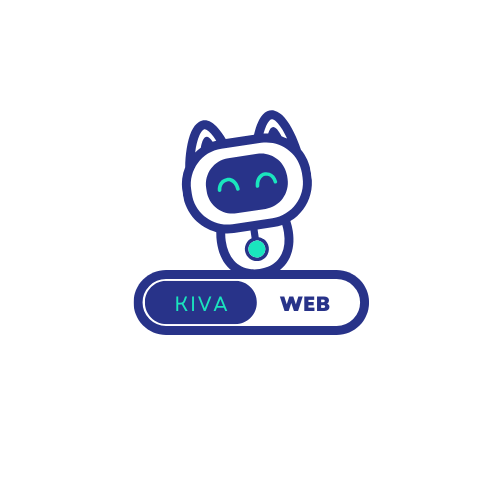In a world where customer relationships can make or break a business, AI-powered CRM systems are like the superheroes of the corporate landscape. They swoop in to save the day, transforming how companies interact with their customers. Imagine having a trusty sidekick that knows your clients’ preferences better than they do—sounds like a dream, right?
With AI at the helm, these systems can analyze data faster than you can say “customer satisfaction.” They predict needs, automate tasks, and even help businesses personalize their approach, all while you sit back and sip your coffee. Say goodbye to the days of tedious spreadsheets and hello to a future where your CRM does the heavy lifting. It’s time for businesses to embrace the power of AI and turn their customer relationships into a well-oiled machine.
Table of Contents
ToggleOverview of AI-Powered CRM
AI-powered Customer Relationship Management (CRM) systems revolutionize how businesses interact with customers and manage relationships. These systems use advanced technology to streamline tasks, enhance customer experiences, and facilitate data-driven decision-making.
Definition and Key Features
AI-powered CRM refers to software that integrates artificial intelligence to boost customer relationship management. Key features include predictive analytics, which anticipates customer behavior, and automation that handles routine tasks. Personalization enables tailored customer interactions based on data insights. Additionally, natural language processing allows for better understanding of customer inquiries and intent. These features collectively drive improved efficiency and responsiveness in customer service.
Benefits of AI Integration
Integrating AI into CRM systems offers multiple benefits for businesses. Increased efficiency results from automated processes, freeing up employees to focus on strategic tasks. Enhanced customer insight arises from data analysis, allowing personalized marketing and improved retention strategies. Predictive capabilities enable proactive engagement, addressing customer needs before they arise. Finally, increased scalability ensures that CRM solutions adapt to growing customer bases without sacrificing service quality.
Comparison with Traditional CRM Systems
AI-powered CRM systems change how businesses interact with customers compared to traditional CRM systems. This advanced technology provides tools that enhance efficiency and insights.
Advantages of AI-Powered Solutions
AI-powered solutions offer numerous advantages. Predictive analytics helps anticipate customer behavior, enabling personalized marketing strategies. Automation streamlines daily tasks, allowing employees to focus on complex issues. Customer support benefits from natural language processing, enhancing interaction quality. Insights derived from data analysis improve decision-making, driving more effective sales strategies. Scalability also remains a key strength, accommodating growing customer bases effortlessly.
Limitations of Non-AI CRM
Non-AI CRM systems present several limitations. Manual data entry consumes time and increases the likelihood of errors. Predictive capabilities are typically absent, resulting in missed opportunities. Personalization efforts lack depth, often leading to generalized communication that frustrates customers. Limited data analysis prohibits organizations from gaining valuable insights, hindering growth. Additionally, scalability constraints can burden teams during peak periods, affecting service quality.
Leading AI-Powered CRM Solutions
Numerous AI-powered CRM solutions stand out in today’s market, offering businesses robust tools to enhance customer interactions. These systems integrate advanced technologies, enabling companies to streamline their operations effectively.
Brief Reviews of Top Products
Salesforce Einstein leads with its comprehensive suite of AI tools that improve forecasting and automate workflows. HubSpot CRM impresses by enhancing lead scoring and providing personalized marketing insights seamlessly. Zendesk harnesses AI for better customer service, enhancing response times through smart automation. Pipedrive integrates AI to simplify the sales pipeline, making task management intuitive and actionable.
Unique Features and Offerings
Predictive analytics provides insightful forecasts, allowing businesses to understand customer behavior trends. Automation capabilities reduce repetitive tasks, freeing teams to focus on strategic initiatives. Personalization features tailor customer interactions, making communications more relevant. Natural language processing enhances customer support, allowing for more engaging and accurate responses. Each of these offerings contributes significantly to improving customer relationship management, enabling businesses to thrive in competitive landscapes.
Implementation Strategies for Businesses
Implementing an AI-powered CRM system requires careful planning and strategy. Businesses need to prioritize understanding their specific needs to maximize the effectiveness of these systems.
Assessing Company Needs
Evaluating current operations and identifying pain points are crucial steps. Companies should analyze customer interaction patterns and data management processes to pinpoint areas for improvement. Gathering input from employees also enhances this assessment. Key stakeholders can provide valuable insights into functionality gaps and desired features. Prioritizing these needs ensures that the chosen CRM aligns with business objectives and enhances the customer experience.
Best Practices for Integration
Successful integration of AI-powered CRM systems relies on strategic approaches. Clear communication among team members fosters collaboration and understanding. Training sessions help employees adapt to new tools, ensuring smooth transitions and efficient usage. Gradual implementation allows businesses to assess the system’s performance and make necessary adjustments. Regularly evaluating user feedback also contributes to ongoing optimization. Prioritizing data security during integration protects customer information and fosters trust, which remains essential in maintaining strong customer relationships.
Future Trends in AI-Powered CRM
AI-powered CRM continues to evolve, promising to enhance customer engagement and streamline processes.
Innovations on the Horizon
New technologies on the horizon are set to revolutionize AI-powered CRM systems. Advancements in machine learning predictive capabilities enhance the accuracy of forecasting customer behavior. Integration of chatbots enables 24/7 support, responding to inquiries instantly, and improving customer satisfaction. Enhanced data privacy measures bolster security protocols, ensuring customer information remains protected. Companies exploring augmented reality can offer immersive experiences, helping customers visualize products before purchase. Each innovation serves to refine customer interactions and drive more meaningful engagements.
Potential Challenges and Considerations
Managing the integration of AI technologies into CRM systems presents potential challenges. Employees may resist changes due to fear of job displacement, requiring effective change management strategies. Data privacy regulations demand rigorous compliance, affecting how companies handle customer data. Companies must also consider the accuracy of AI algorithms, as biased data can lead to skewed insights and decisions. Budget constraints frequently hinder the adoption of advanced solutions, requiring a cost-benefit analysis. Addressing these challenges ensures successful implementation and maximizes the benefits of AI-powered CRM solutions.
Conclusion
AI-powered CRM systems are revolutionizing the way businesses interact with customers. By leveraging advanced technologies, these systems not only enhance efficiency but also foster deeper connections through personalized engagement. As companies transition from traditional methods to AI-driven solutions, they unlock the potential for improved customer insights and proactive communication.
The future of customer relationship management lies in embracing these innovations. With ongoing advancements in machine learning and automation, businesses can expect to see even greater enhancements in their customer interactions. Adopting AI-powered CRM isn’t just a trend; it’s a strategic move that can lead to sustainable growth and competitive advantage in today’s fast-paced market.











